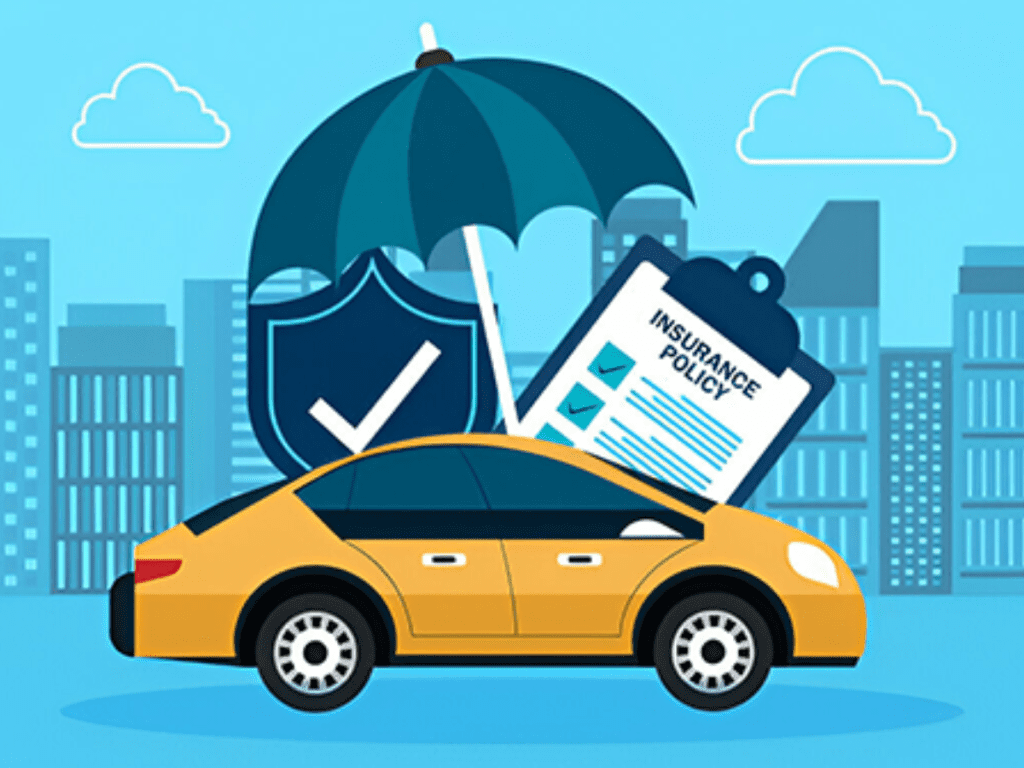Introduction
When it comes to financing a new or used car, one of the first decisions you’ll face is where to secure an auto loan. With numerous options available, choosing the right lender can feel overwhelming. Traditionally, car buyers have turned to banks, credit unions, and car dealerships for their auto loan needs. However, the rise of online lenders has introduced new ways to finance a car, each with its own benefits and drawbacks. In this article, we’ll explore the differences between traditional and online auto lenders, helping you determine which option might be the best fit for your needs.
Understanding Auto Loans
Before diving into the specifics of traditional and online lenders, it’s essential to have a basic understanding of how auto loans work. An auto loan is a secured loan, meaning the vehicle itself serves as collateral for the loan. If you fail to make payments, the lender can repossess the car. Auto loans typically have fixed or variable interest rates, and the loan term usually ranges from 36 to 72 months.
When you apply for an auto loan, lenders evaluate several factors, including your credit score, income, employment history, and the value of the car you intend to purchase. Based on this evaluation, the lender will offer you a loan with an interest rate and repayment term tailored to your financial situation.
Traditional Auto Lenders
Banks
Banks have long been a popular choice for auto loans. Many people have an existing relationship with their bank, which can make the application process easier and more convenient. Banks typically offer competitive interest rates, especially for borrowers with excellent credit. Additionally, banks may offer other financial products that can complement your auto loan, such as credit cards or home equity loans, which can be beneficial if you’re looking for a one-stop shop for all your financial needs.
However, banks can have more stringent requirements for auto loan approval. They may require higher credit scores and offer less flexibility in terms of loan repayment structures. Additionally, bank loans often involve more paperwork and a longer approval process compared to other options.
Credit Unions
Credit unions are nonprofit financial institutions that offer many of the same services as banks, including auto loans. The main difference between credit unions and banks is that credit unions are member-owned, which often results in lower interest rates and more personalized customer service. If you’re a member of a credit union, you may be able to secure a favorable auto loan with better terms than you would from a traditional bank.
One of the advantages of credit unions is their willingness to work with borrowers who have less-than-perfect credit. While credit unions may have more relaxed lending standards, they often still offer competitive rates, making them an attractive option for many car buyers. The downside, however, is that membership in a credit union may require meeting certain eligibility criteria, which could limit your options.
Car Dealerships
Many car buyers opt to secure financing through the dealership where they purchase their vehicle. Dealerships often work with a network of lenders, including banks and credit unions, to offer financing to buyers. In some cases, dealerships may even offer in-house financing, where the dealership itself acts as the lender.
While dealership financing can be convenient, it may not always offer the best terms. Dealerships may mark up interest rates or charge higher fees, especially if you’re financing through a subprime lender. It’s also important to be cautious of “zero percent financing” deals, as these may come with hidden costs or other terms that aren’t as favorable as they seem.
One advantage of dealership financing is the potential for special promotions or incentives, such as cash rebates or reduced interest rates, which may help you save money in the long run. However, it’s essential to compare offers from different lenders before committing to a loan through the dealership to ensure you’re getting the best deal.
Online Auto Lenders
Advantages of Online Lenders
The rise of online lenders has transformed the auto loan industry, offering car buyers an alternative to traditional financial institutions. Online lenders typically operate through websites or mobile apps, allowing borrowers to apply for loans quickly and easily from the comfort of their homes.
One of the key advantages of online lenders is their streamlined application process. Most online lenders allow you to complete the entire loan application online, including submitting necessary documents and receiving loan offers. This convenience can save you time and effort, especially if you prefer not to visit a physical bank or credit union.
Additionally, online lenders often have lower overhead costs compared to traditional lenders, which can translate into more competitive interest rates. Online lenders may also offer flexible loan terms and faster approval times, which can be appealing if you’re looking to secure financing quickly.
Comparison of Online Lenders
There are several types of online auto lenders, each catering to different types of borrowers. Here are a few of the most common types:
- Direct Online Lenders
Direct online lenders offer auto loans directly to consumers without involving third parties. These lenders typically provide an online application process, and once approved, the loan funds are disbursed to your bank account or directly to the dealership. Some well-known direct online lenders include LightStream, Carvana, and RoadLoans.
Direct online lenders often offer competitive rates and flexible terms, making them a popular choice for borrowers with good credit. However, they may not be as flexible when it comes to approving borrowers with poor credit, and they may charge higher interest rates for those with less-than-perfect credit.
- Peer-to-Peer Lending Platforms
Peer-to-peer (P2P) lending platforms connect borrowers with individual investors who are willing to lend money for a profit. P2P platforms such as LendingClub and Prosper have gained popularity in recent years, offering an alternative to traditional bank loans.
P2P loans can be more flexible than traditional auto loans, as they are often based on the borrower’s creditworthiness and not just the value of the car. However, P2P lending platforms may charge higher interest rates for borrowers with lower credit scores, and the approval process can sometimes take longer than with direct online lenders.
- Auto Lenders Through Online Marketplaces
Some online marketplaces, such as AutoPay and MyAutoLoan, connect borrowers with multiple lenders to compare auto loan offers. These platforms allow you to shop around for the best rates and terms from a variety of lenders, including banks, credit unions, and online lenders.
Using an online marketplace can be a great way to compare offers quickly and easily, helping you find the best deal without having to visit multiple websites or institutions. However, it’s important to note that these platforms may not always offer the lowest rates, as they may charge fees for connecting you with lenders.
Disadvantages of Online Lenders
While online lenders offer many benefits, there are also some potential drawbacks. One of the main concerns is that online lenders may not have the same level of customer service as traditional lenders. If you encounter any issues during the application or approval process, it may be harder to get personalized assistance compared to working with a bank or credit union.
Additionally, online lenders may not offer as many flexible loan options for individuals with poor credit. While some lenders specialize in subprime loans, the interest rates can be significantly higher than those offered by traditional lenders. If you’re looking for a loan with a low interest rate, online lenders may not always be the best option, especially if your credit is less than stellar.
Which Option Is Right for You?
Choosing between traditional and online auto lenders ultimately depends on your unique financial situation and preferences. Here are some factors to consider when deciding which option is best for you:
- Credit Score
If you have a high credit score, you’re likely to qualify for competitive interest rates from both traditional and online lenders. However, if your credit is less-than-perfect, online lenders may offer more flexible options for borrowers with bad credit. - Convenience
If convenience is a priority, online lenders may be the better choice. Their streamlined application process allows you to apply for a loan quickly and easily without visiting a bank or credit union in person. - Interest Rates
If you’re looking for the best possible interest rates, it’s essential to shop around and compare offers. Both traditional and online lenders offer competitive rates, but online lenders may have a slight edge due to their lower overhead costs. - Customer Service
If you prefer a more personal touch, working with a bank or credit union may be the better choice. These institutions tend to offer more personalized customer service and can be more accommodating if you encounter any issues with your loan. - Loan Terms and Flexibility
If you’re looking for flexible loan terms, credit unions and online lenders may offer more options than traditional banks. Online marketplaces also allow you to compare offers from multiple lenders, making it easier to find a loan that suits your needs.
Conclusion
When it comes to securing an auto loan, there’s no one-size-fits-all solution. Both traditional and online lenders have their advantages and drawbacks, and the best choice for you will depend on your financial situation, preferences, and needs. If you’re looking for competitive rates and flexible terms, online lenders may be a great option, especially if you prefer the convenience of applying online. However, if you’re looking for personalized service and a more traditional approach, banks and credit unions may be a better fit. Regardless of which option you choose, be sure to shop around and compare offers to ensure you’re getting the best deal for your auto loan.

